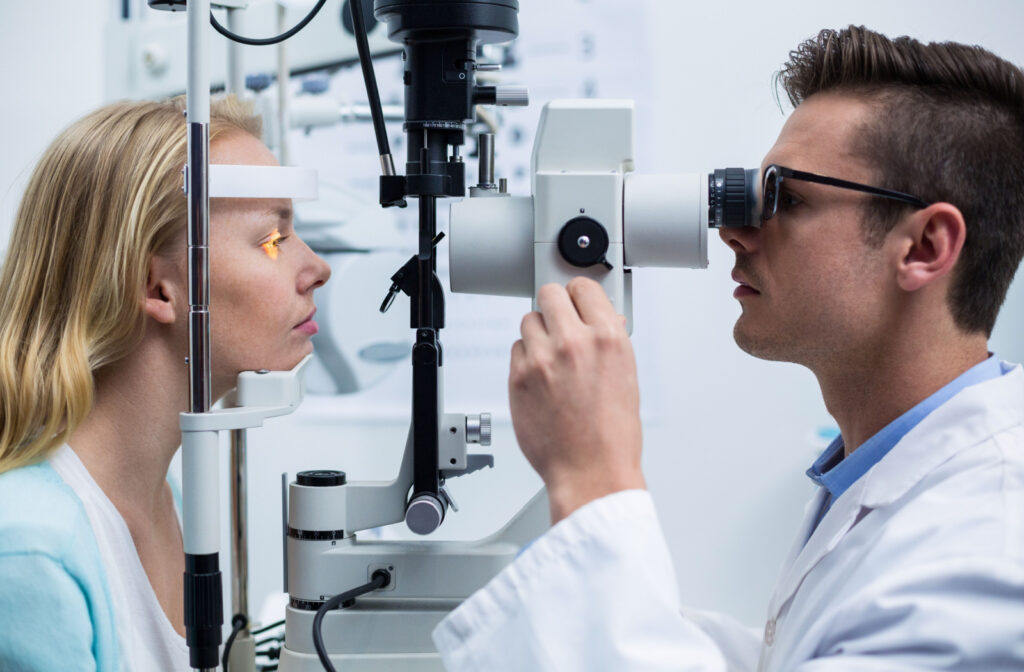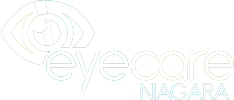The human body is incredible, but it can also be delicate. Many people experience eye conditions, diseases, and other vision issues. Regular eye exams are important for diagnosing and managing vision problems.
2 common vision problems diagnosed during routine eye exams are nearsightedness and farsightedness. Both require glasses, but what’s the difference between them?
Nearsightedness causes distant images to appear blurry while nearby objects are clear, while farsightedness causes nearby objects to appear blurry while distant objects are clear.
What Is Nearsightedness?
The eye functions much like a camera. The cornea and lens act as the camera lens, focusing incoming light onto the retina, which acts as the camera sensor, capturing the images. The iris, similar to the camera aperture, controls the amount of light entering the eye, while the optic nerve functions as the cable transmitting the captured images to the brain for processing. Just as a camera captures and processes images, the eye plays a crucial role in perceiving the world around us.
All the parts of the eye work together to create clear images. But when the eye grows too long or the cornea becomes too steep, light lands in front of the retina, causing distant objects to appear blurry while close objects remain clear. This is known as nearsightedness or myopia.
Uncorrected myopia can also cause:
- Eye strain
- Headaches
- Difficulty concentrating
- Fatigue
It’s not entirely known why myopia develops. However, it’s understood that genetics and certain environmental factors can contribute to it.
What Is Farsightedness?
Farsightedness, also known as hyperopia, causes nearby objects to appear blurry while distant objects remain clear. It occurs when the eye is shorter than normal, causing light to focus behind the retina instead of directly on it.
Babies’ eyes are hyperopic at birth, but as they grow and their eyes lengthen, this usually corrects itself. However, some people may continue to have farsightedness into adulthood.
Uncorrected hyperopia can cause:
- Difficulty focusing on close objects
- Eye strain
- Squinting
- Headaches
- Eye fatigue or discomfort
- The need for bright light when doing close-up work
How Are Nearsightedness & Farsightedness Corrected?
Nearsightedness and farsightedness are relatively common. Typically, your optometrist will recommend prescription eyeglasses or contact lenses, which alter how light enters the eye, focusing it correctly on the retina. This makes it much easier for your eyes to build clear images of your environment. However, you’ll need to book a comprehensive eye exam first to get your exact prescription—glasses aren’t universal!
In some cases, if your prescription has been stable for 1–2 years, you may qualify for corrective laser eye surgery. These procedures alter the shape of your cornea so light properly refracts in your eyes without corrective lenses. However, not everybody is a candidate—you’ll need a laser eye surgery consultation to determine eligibility.
The Importance of Regular Eye Exams
Regular eye exams are essential for taking care of your eyes and vision. They allow your eye doctor to test your visual clarity, identify potential problems, and keep an eye out for developing eye conditions.
Even if you have no apparent vision problems, eye exams are important. We recommend:
- At least 1 eye exam per year if you’re under 19.
- At least 1 eye exam every 2 years if you’re between 19 and 65.
- At least 1 eye exam per year if you’re over 65.
If you have a diagnosed eye condition or experience sudden vision changes, it’s crucial to visit more often. Many eye conditions are easier to treat in their early stages.

Taking Care of Your Vision
Nearsightedness and farsightedness are common vision problems, but with the help of your experienced eye care team, you can take steps to keep your eyes healthy and your vision clear. If you’re experiencing any changes to your vision or think it’s time for your next eye exam, book an eye exam at EyeCare Niagara. We’re here to help, so contact our team today, and let’s take care of your eyes—together.




